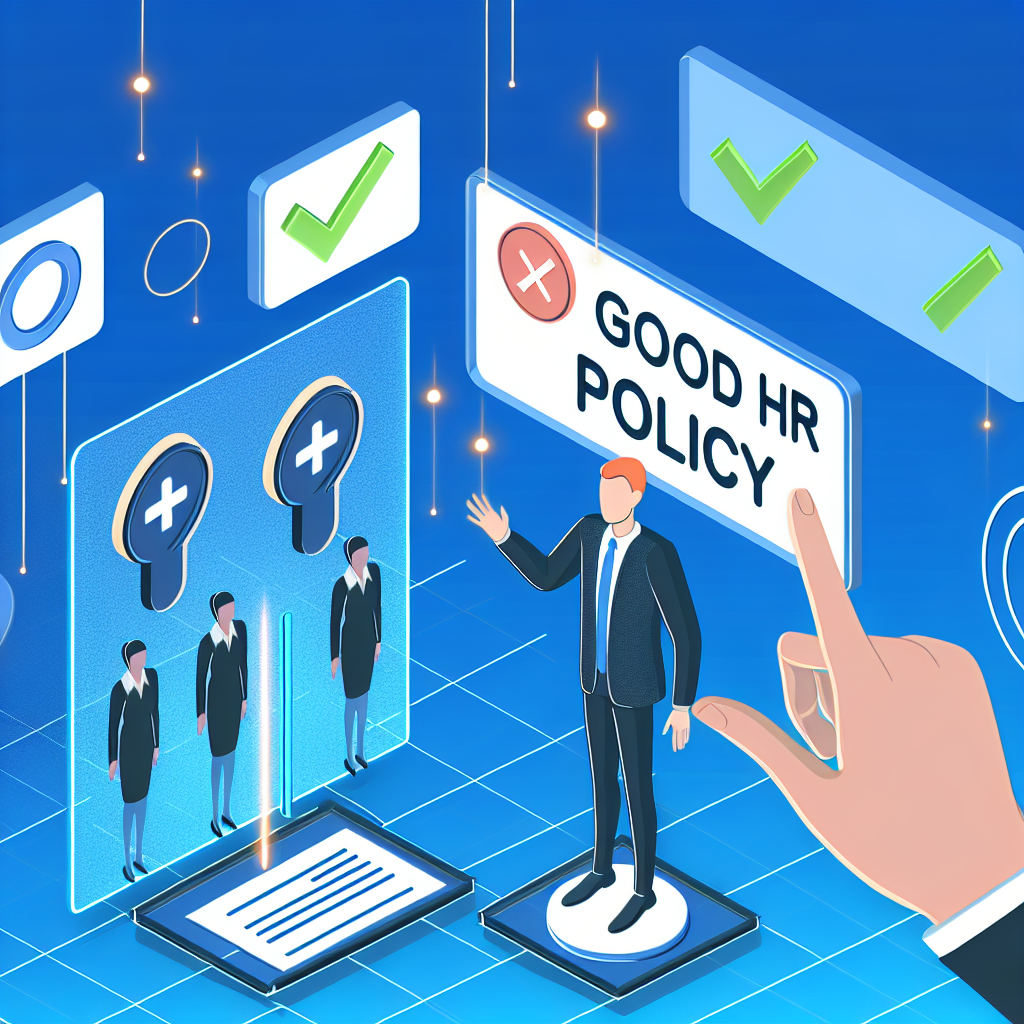
Human Resources (HR) policies serve as the backbone of any organisation. They govern the intricate relationship between employers and employees, creating an environment defined by clarity, security, and mutual respect. A well-crafted HR policy not only facilitates compliance with legal standards but also enhances workplace culture and employee satisfaction. In an age characterised by rapid change and increased scrutiny, developing good HR policies is paramount for organisations aiming to thrive.
Understanding the Significance of Good HR Policies
Good HR policies offer multifaceted benefits that go well beyond mere compliance with legal requirements. Here’s an exploration of their significance:
- Legal Protection: Well-defined HR policies provide robust legal safeguards for the company. By ensuring adherence to labour laws and regulations, they help prevent potential legal claims and disputes.
- Employee Guidance: Clear policies offer employees specific information regarding their rights, expectations, and responsibilities. This clarity reduces misunderstandings and the potential for disputes.
- Compliance: Staying compliant with the ever-changing landscape of laws and regulations is essential. Good HR policies ensure that organisations remain in good standing and maintain a positive reputation.
- Workplace Culture: Policies establishing standards of behaviour foster a healthy work environment. This helps instil a culture of trust and fairness among employees.
- Dispute Resolution: HR policies create a structured approach for addressing grievances and disputes, thereby supporting a harmonious workforce.
Current Trends in HR Policies
The landscape of HR continues to evolve, influenced by cultural changes, technology, and societal shifting priorities. Below are some of the current trends shaping HR policies:
- Technology Integration: The modern workplace frequently utilises technological solutions to improve processes. For example, online platforms facilitate recruitment while digital training modules enhance employee development.
- Diversity, Equity, and Inclusion: A significant focus on promoting diversity, equity, and inclusion (DEI) is evident in many organisations today. HR policies are being specifically crafted to enhance these values, thereby creating welcoming and safe environments for all employees.
- Remote Work Policies: The rise of remote work necessitates an overhaul of traditional HR policies. Flexible working arrangements, home office allowances, and guidelines for remote communication are essential areas of focus.
- Social Media Management: Many HR departments are now taking on the task of managing social media presence. This includes shaping a positive online reputation and addressing concerns arising from employee posts.
Key Benefits of Effective HR Policies
Implementing coherent HR policies results in a plethora of advantages for both employers and employees:
- Consistency: Well-formed policies promote uniformity in treating employees and making decisions. This consistency is key in ensuring fairness across the organisation.
- Employee Satisfaction: Proactively addressing grievances through clear policies translates to higher employee satisfaction and engagement.
- Operational Efficiency: Streamlined HR practices reduce bureaucratic red tape, accelerating decision making and enhancing overall organisational efficiency.
- Compliance with Laws: Vigilance in maintaining legal standards shields organisations from potential legal issues and protects their reputation.
- Inclusive Environment: Policies centred on DEI contribute significantly to employee well-being and productivity, creating a sense of belonging within the workforce.
Best Practices for Writing HR Policies
Creating effective HR policies is not a simple task; however, adhering to certain best practices can lead to successful outcomes. Here are some recommendations for HR professionals:
- Align with Organisational Goals: Policies should be integrated with the overall goals of the organisation, reflecting its values and mission.
- Maintain Legal Compliance: Constant vigilance is crucial to ensure compliance with relevant laws and regulations, thus avoiding potential pitfalls.
- Involve Stakeholders: Engaging a diverse group of stakeholders, including employees and management, enriches the policy-making process and leads to more relevant and widely accepted policies.
- Maintain Flexibility: Policies need to be adaptable to the shifts and changes our modern workplace experiences.
- Focus on Employee Experience: Prioritising policies that enhance the employee experience contributes to overall job satisfaction and retention.
- Provide Examples and Responsibilities: Offering clear guidelines and examples ensures that everyone understands their roles and responsibilities.
- Effective Communication: Communicating policies through accessible channels, such as employee handbooks, ensures that all employees are aware of them.
- Regular Review and Update: It’s essential to frequently review and update policies to adapt to changing laws, societal needs, and organisational goals.
- Ensure Accessibility: Policies should be easily accessible via an employee handbook or HR software platform, making them available to everyone.
- Promote Transparency: Fostering an environment of open communication by clearly stating policies and their implications is vital for trust and cooperation.
Conclusion
In conclusion, good HR policies are indispensable for any organisation aiming to build and sustain a constructive workplace culture. By prioritising legal compliance, employee satisfaction, and operational efficiency, organisations can navigate the complexities of human resource management successfully. As HR professionals adeptly implement the best practices outlined and keep an eye on emerging trends, they position their organisations for future success in a landscape that continues to change.
The importance of effective HR policies cannot be overstated, and as the workplace continues to evolve, so too must the policies that guide it. By fostering a culture of fairness, transparency, and inclusion, HR can enhance not only employee well-being but the organisation’s long-term success.
For further insights and resources on creating effective HR policies, please explore the following links:
Vadim Kouznetsov is a distinguished entrepreneur and the visionary founder and CEO of JobXDubai.com, the UAE’s rapidly expanding job board. Renowned for his expertise in bridging the gap between job seekers and employment opportunities, Vadim has become a leading authority in the recruitment and job market of Dubai.
